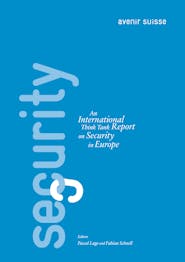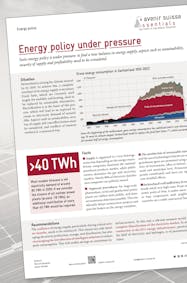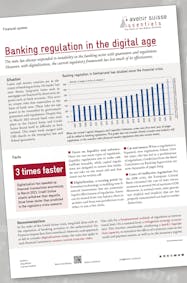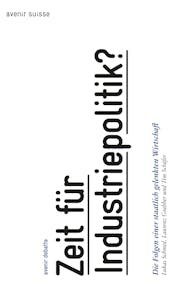On 16 and 17 January 2020, the fourth international Think Tank Summit hosted by Avenir Suisse will be held at Zurich Airport under the banner of “The Future of Transnational Security on the European Continent.” In the “An International Think Tank Report on Security in Europe” published to accompany the conference, participating researchers from eight different countries show why European collaboration on security is struggling because of organizational and political inefficiency rather than a lack of resources.
In light of the current geopolitical situation – and in particular the United States’ growing focus on the Asian region – it’s clear that Europe will have to assume greater responsibility for security going forward. However, with different countries pursuing different security interests on the basis of their geographic location or integration ambitions (sovereignty in security terms versus compatibility with the US and NATO), the continent has lacked a clear strategy on security policy so far.
Interestingly from the Swiss point of view, the authors of the anthology argue that Europe needs to think more collectively and strategically, seeing autonomy in security terms on the European continent primarily as a matter of transnational cooperation.
From “Switzerland first” to a transnational approach to security
Avenir Suisse’s contribution to the report describes how the strategic approach has to be pursued more extensively, also in federalist Switzerland. New security threats know no national boundaries, and cannot be addressed with a military mandate alone. A more comprehensive approach is called for. A debate about the benefits of different security set-ups and measures will only be possible once Switzerland starts developing an actual security strategy.
The following recommendations are intended to create greater transparency on security policy and bring assess Switzerland’s transnational engagement:
- Switzerland needs a security strategy which is based on a systematic analysis of the threats, prioritizes risks and measures at a strategic level, and builds political transparency on the costs. The Swiss Federal Council’s next Security Policy Report would be a good starting point.
- The federal administration should create a security council to implement pivotal security policy decisions efficiently and cost-effectively.
- Switzerland should become established as a security and governance hub. Geneva is the obvious choice to play a pioneering role in cybersecurity, artificial intelligence, and hybrid threats, and could exert a decisive influence on norms and standards worldwide.
- In cyber defense the potential of public-private partnerships should be exploited more fully in the future, a move which would also strengthen the Swiss system of non-professional political service.
Avenir Suisse Think Tank Summit 2020: “The Future of Transnational Security on the European Continent,” with speakers including OSCE Secretary General Thomas Greminger, ambassador Pälvi Pulli (DDPS) and Ben Hodges (Commander, United States Army in Europe, 2014 – 2017). Prior registration required.






